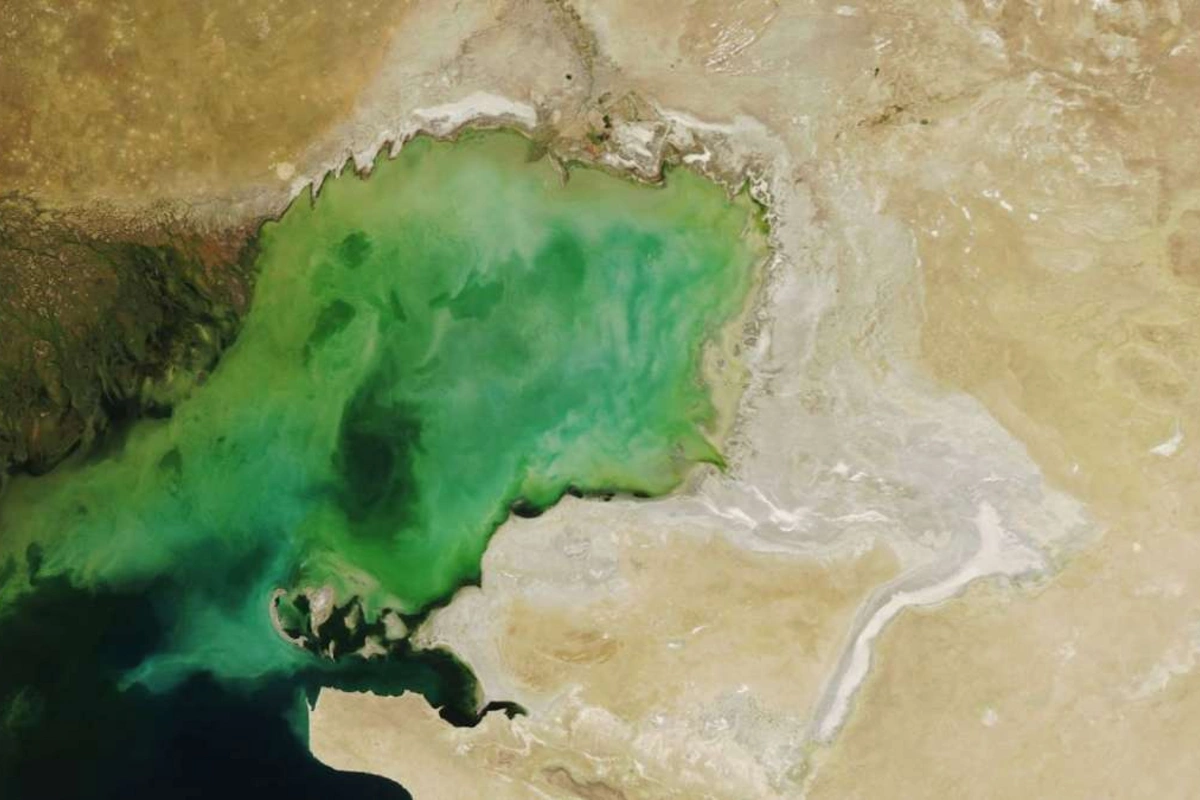
"The Caspian Sea, the largest enclosed body of water on Earth, “is under siege from the triple planetary crisis: the crisis of climate change, the crisis of nature, land and biodiversity loss, and the crisis of pollution and waste.”
Photo: NASA
By the end of this century, the Caspian Sea's water levels could drop by up to 18 meters, a shift that could devastate ecosystems, threaten livelihoods, and jeopardize food security and regional stability. Inger Andersen, UN Under-Secretary-General and UNEP Executive Director, raised this alarming issue during the "Caspian Sea Water Decline in Light of Climate Change" event at COP29 in Baku, Azerbaijan, The Caspian Post reports citing foreign media.
According to Andersen, the Caspian Sea, the largest enclosed body of water on Earth, “is under siege from the triple planetary crisis: the crisis of climate change, the crisis of nature, land and biodiversity loss, and the crisis of pollution and waste.” Andersen warned that without urgent action, this environmental and human crisis may result in as many as five million people being displaced from the Caspian basin by the middle of the century.

Inger Andersun; image: UNEP
The UNEP chief mentioned the impacts of the Caspian crisis: declining fisheries, salinization threatening agriculture, and the critically endangered Caspian seal — a species found nowhere else on Earth — facing extinction. Andersen emphasized the critical importance of the Tehran Convention — “the cornerstone for regional cooperation on the Caspian Sea.” The Framework Convention for the Protection of the Marine Environment of the Caspian Sea (Tehran Convention) was signed by the five Caspian littoral states — Azerbaijan, Iran, Kazakhstan, Russia, and Turkmenistan — in 2003 and entered into force in August 2006 after being ratified by all five governments.
The Tehran Convention “provides a platform to align our efforts, to unite science and policy, and to prioritize sustainable development across this unique region. As the interim Secretariat of the Tehran Convention, UNEP is proud to support these vital efforts and remains firm in its commitment to providing technical expertise, fostering collaboration, and supporting innovative financing mechanisms to address this urgent challenge,” said Andersen, emphasizing that robust monitoring and predictive models are essential to understanding and managing the drivers of Caspian water level changes.
“Science must inform every decision we take, whether on climate adaptation, biodiversity protection or pollution control,” Andersen stated, calling for regional cooperation to be strengthened. “The challenges the Caspian faces transcend borders. Solutions must do the same. Through trans-boundary collaboration, we can craft integrated solutions that safeguard ecosystems, support livelihoods, and promote equitable economic growth,” she stated.
Share on social media